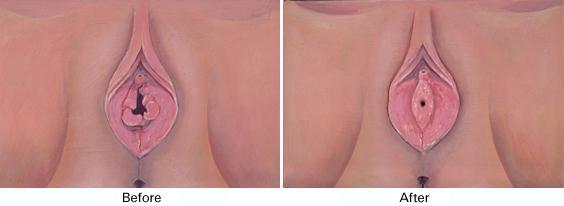Hymenotomy in Nepal
Search and Compare the Best Clinics and Doctors at the Lowest Prices for Hymenotomy in Nepal

Find the best clinics for Hymenotomy in Nepal
No clinics available
United Arab Emirates offers the best prices Worldwide
Price: $ 547

- Home
- Nepal
WHY US?
At Medijump, we're making medical easy. You can search, compare, discuss, and book your medical all in one place. We open the door to the best medical providers worldwide, saving you time and energy along the way, and it's all for FREE, no hidden fees, and no price markups guaranteed. So what are you waiting for?

Free

Best Price

Widest Selection

Risk-Free
What you need to know about Hymenotomy in Nepal

Hymenotomy is a surgical procedure to remove or open the hymen – the membrane near the opening of the vagina. It is usually performed on a woman with a septate or imperforate hymen that obstructs the flow of menstruation, as well as an unusually thick or rigid hymen, such as microperforated hymen, which limits access to the vaginal opening, causing pain and discomfort for sexual activities and removing/inserting tampons.
What does a Hymenotomy Procedure Involve?
You will receive general anesthetic before the procedure, but in some cases, a local anesthetic is used instead. Then, your surgeon will create an opening by cutting the membrane of the hymen using special surgical tools. The final step is securing any incisions using small dissolving stitches, which will be absorbed by your body naturally as you heal.
How Long Should I Stay in Nepal for a Hymenotomy Procedure?
You may be able to leave the hospital on the same day. However, you should plan to stay in Nepal for 5 to 7 days for initial recovery. Your doctor may also schedule a follow-up hospital checkup to monitor your healing.
What's the Recovery Time for Hymenotomy Procedures in Nepal?
Most patients feel well enough to return to work and resume their normal activities within a few days, but you may be recommended to rest for 1 week. You should be able to have sexual intercourse after 2 to 4 weeks following a Hymenotomy. It is important to consult with your surgeon as to when you can get back to your full routine, including work and exercises.
What sort of Aftercare is Required for Hymenotomy Procedures in Nepal?
It is very important to follow the post-operative care instructions that your surgeon gives you to help with your recovery, which usually includes recommended exercise, dietary restriction, and wound care. You also need to keep the genital area dry and clean and avoid inserting anything into your vagina, including a menstrual cup, tampon, or diaphragm at least until you have recovered completely.
What's the Success Rate of Hymenotomy Procedures in Nepal?
Hymenotomy is very safe, effective, and it has a high success rate. Although risks of side effects and complications are rare, they can occur, which include infection, bleeding, inflammation, scarring, injury to other organs, lingering pain, and scar tissue. Some people may also have complications when they become pregnant and give birth after the procedure, so make sure you consult with your surgeon if you are planning to become pregnant.
Are there Alternatives to Hymenotomy Procedures in Nepal?
Hymenotomy is currently the only option to treat imperforate, microperforated, and septate hymen. However, if you do not want to undergo surgery, you should discuss with your doctor what your best option will be.
What Should You Expect Before and After the Procedure
Before the surgery, you may be unable to have sex, menstruate, or use a tampon. After a hymenotomy, all of these problems are relieved and you can enjoy them without any pain. You will also be able to have normal menstruation.
Whilst the information presented here has been accurately sourced and verified by a medical professional for its accuracy, it is still advised to consult with your doctor before pursuing a medical treatment at one of the listed medical providers
No Time?
Tell us what you're looking for and we'll reachout to the top clinics all at once
Enquire Now

Popular Procedures in Nepal
Prices Start From $342

Prices Start From $222

Prices Start From $714

Prices Start From $69

Recommended Medical Centers in Nepal for procedures similar to Hymenotomy

- Interpreter services
- Translation service
- Religious facilities
- Medical records transfer
- Medical travel insurance
- Health insurance coordination
- TV in the room
- Safe in the room
- Phone in the room
- Private rooms for patients available

- Interpreter services
- Translation service
- Religious facilities
- Medical records transfer
- Medical travel insurance
- Health insurance coordination
- TV in the room
- Safe in the room
- Phone in the room
- Private rooms for patients available

- Interpreter services
- Translation service
- Religious facilities
- Medical records transfer
- Medical travel insurance
- Health insurance coordination
- TV in the room
- Safe in the room
- Phone in the room
- Private rooms for patients available
Hymenotomy in and around Nepal
Introduction
Nepal is a country in South Asia, sandwiched between India and China. Home to the mighty Mount Everest, this incredible country has diverse landscapes, from the Himalayan Mountains in the north to the sprawling plains in the south. Towering mountains, charming hill villages, golden mountains, and jungle wildlife, Nepal is truly one of the world’s best travel destinations. Beyond its nature and culture, this country is also increasingly popular for its healthcare. With its affordable high-quality medical facilities, Nepal is considered to have immense potential for medical tourism, due to the availability of good infrastructure, highly trained specialists, modern medical equipment, and relatively cheaper medical treatment. In fact, it’s currently the fastest-growing segment of the country’s tourism. Medical tourists coming to Nepal are usually seeking exceptionally high medical treatment at competitive rates. Some of the most sought after procedures are dental treatments, cardiac services, and neurological treatments.
Popular Cities and Regions in Nepal
Kathmandu, the capital and largest city in Nepal, is historic, enticing, spiritual, and vibrant. One of the most famous attractions in the city is the old town, where tourists can find the most popular Tibetan pilgrimage site, the Kathesimbhu Stupa. Another top attraction is Kumari Bahal, which is the home of the Kumari, the girl who is selected to be the town’s living symbol of Devi. Tourists looking to relax in a more laid-back vibe usually go to Pokhara. Stretching along the shore of an idyllic lake, it offers spectacular scenery. It also boasts a thriving adventure-sports industry, from paragliding to paddle boats. Anyone who wants to experience an ancient way of life should visit Bhaktapur, which is filled with artisan weave cloths, amazing cuisine, and beautiful temples.
Transport in Nepal
The main international airport in Nepal is Tribhuvan International Airport, which serves flights to and from numerous cities in Asia, such as Delhi, Hong Kong, and Dubai. Getting around the country can be a challenge, but public transportation is available. Buses are affordable, however, they tend to be overloaded. Tourist buses are the best way to travel around as they are in good condition.
Visas in Nepal
Citizens of India do not need a visa to enter Nepal without restrictions. Citizens of almost all nations, including the US and all EU countries, can obtain a visa on arrival that is valid for up to 90 days. Only holders of passports from 12 countries, need to have a visa in advance.
Weather in Nepal
Nepal has five seasons. Spring starts in March until May, it offers pleasant weather that is not too cold nor too hot. Summer arrives in June and ends in August, bringing hot temperatures of around 28°C. Monsoon from June to September receives rain almost every day. Autumn and pre-winter bring sunny and pleasant weather, while winter can be very cold.
Additional Info
-
Local Currency: Nepali rupee (NPR) is the official currency. 1 USD converts to 115 NPR.
-
Money & Payments: ATMs are available in major cities, such as Kathmandu and Pokhara. Credit cards are accepted in major hotels and restaurants. Tipping is expected.
-
Local Language: The official language is Nepali. English is mainly spoken in tourism areas.
-
Local Culture and Religion: Hinduism and Buddhism coexist in Nepal peacefully. Islam, Kiratism, and Christianity are in the minority.
-
Public Holidays: Some of the most celebrated public holidays are Maha Shivaratri, Buddha Jayanti, Sambidhaan Diwas, and Bhaitika.
Popular Searches
- Plastic Surgery in Thailand
- Dental Implants in Thailand
- Hair Transplant in Thailand
- Breast Augmentation Thailand
- Gastric Sleeve in Thailand
- Gender Reassignment Surgery in Thailand
- Laser Hair Removal in Bangkok
- Botox in Bangkok
- Dermatology in Bangkok
- Breast Augmentation in Bangkok
- Coolsculpting in Bangkok
- Veneers in Turkey
- Hair Transplant in Turkey
- Rhinoplasty in Turkey
- Stem Cell Therapy in Mexico
- Rhinoplasty in Mexico
- Liposuction in Mexico
- Coolsculpting in Tijuana
- Rhinoplasty in Korea
- Scar Removal in Korea
- Gastric Sleeve in Turkey
- Bone Marrow Transplant in India
- Invisalign in Malaysia
- Plastic Surgery in the Dominican Republic
- Tummy Tuck in the Dominican Republic
- Plastic and Cosmetic Surgery in Poland
- Rhinoplasty in Poland
- Hair Implant in Poland
- Dental Implants in Poland
- IVF in Turkey